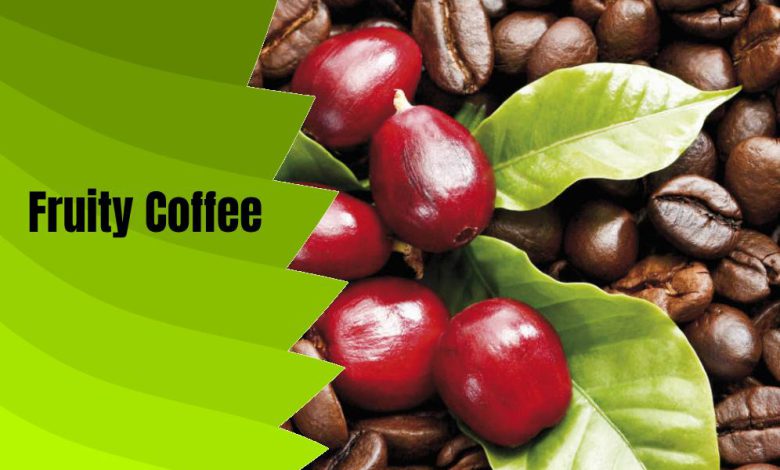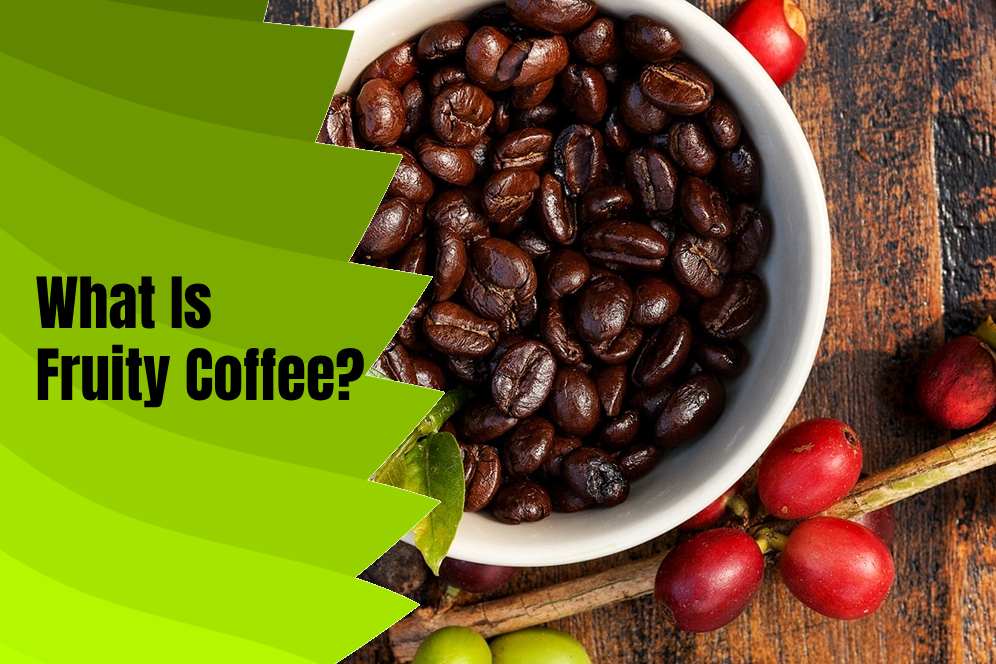Fruity Coffee – Brew Recipe

Fruity coffee? Is there such a thing? Absolutely! We often encounter questions about which coffee, in particular, has a fruity flavor or the best method to brew fruity coffee. In this article, we aim to introduce you to a wide range of filtered coffee and show you how to get the best results with fruity coffee.
Contents
History of coffee
Coffee, with over 800 different aromas, influences our taste buds every day and can convince us of its fragrant, sometimes bitter, or even fruity flavor. Today, we have access to almost endless varieties of coffee. Using coffee beans and various preparation methods, a wide range of coffee brews can be created. The flavors vary widely, from simple black coffee to creamy, frothy coffee with milk. There is a vast diversity in coffee options.
Coffee is a globally popular beverage valued not only for its invigorating effects but primarily for its strong and delightful flavor. Its aromatic varieties range from fruity berry-like notes to nutty and chocolatey undertones. No artificial flavorings or other additives are used. Different coffee beans alone can exhibit thousands of flavors. Additionally, other influencing factors include individual preparation and the use of additives like milk and sugar.
How do individual coffee beans affect the flavor of coffee?
Depending on the type, a coffee plant takes several months to fully mature. Most coffee-growing regions are located in the so-called coffee belt, which encompasses countries near the equator. Here, optimal climatic conditions for the fast growth of coffee plants exist, with daily sunshine, consistent rainfall, fertile soil, and high temperatures in the summer allowing coffee beans to thrive. The final fruity note of coffee depends on the variety and the region of growth. Coffee farmers vary greatly depending on their region
Some can cultivate coffee plants in fertile volcanic soils without using pesticides and other chemicals, while others employ certain tools to protect their plants from pests and ensure faster growth. Since coffee is a popular commodity worldwide, thousands of tons of it are produced annually and shipped to Europe and other places. Transportation covers long distances and can sometimes alter the flavor of our coffee. It’s crucial to store coffee beans safely. Air, light, and heat are the worst enemies of coffee beans and can gradually diminish their aroma.
Which coffee bean contains more or less bitterness and a strong fruity aroma depends on the type of coffee. There are two main species: Arabica and Robusta. Almost all the coffee in the world is made from one of these beans. Arabica beans have a higher acidity compared to Robusta, ensuring a stronger flavor. Coffee beans from African countries are also fruitier compared to beans from other countries.
What is a fruity coffee?
Fruity coffee is a relatively lengthy production process that begins on the farm. Several factors come into play here. Let’s start with the countries of origin. It’s important to know that different countries of origin bring forth different coffee flavors. For example, while Brazilian coffee tends to be a bit nuttier and chocolatey in taste, Kenyan coffee is fruitier. Various natural effects have a significant impact here, with soil composition making a substantial difference. The richer the soil in nutrients, the fruitier the coffee. I always like to use Kenyan Riakahara as a good example of fruity coffee, as the high altitude and nutrient-rich soil transform it into a very fruity coffee.
What coffee has a fruity flavor?
Another crucial point is the preparation of the beans. Preparation involves the process of separating the coffee cherry pulp from the actual beans. Farmers primarily sell green beans, which we are familiar with as green coffee. The determinant factor between preparation and fruity coffee is its impact on the final cup in our hands. In recent years, numerous experiments have been conducted, especially with processing methods, to adapt to new trends and customer demands.
Different processes play a significant role in the intriguing flavors of fruity coffees. Anaerobic and washed preparations are particularly suitable for fruity coffees. Coffee cherries are fermented in tanks or large bags for several days or hours before they are dried on special drying beds for a few weeks and regularly turned. Of course, different preparations vary from one another.
Fruity Coffee – Our Maker: Roasting
Let’s move on to the tool we use for fruity coffees: Roasting! The degree of roasting the beans is also highly significant for fruity coffee. Coffee must be roasted gently to preserve the distinct and intricate acids that make it fruity. This way, the characteristics of each green coffee are better showcased. If coffee is roasted too dark, like for espresso, the acids fade away, and the coffee has a fuller body.
If lightly roasted, the result is a fruity coffee that can evoke notes of citrus, jasmine, mandarin, and many other exciting flavors. Each coffee is unique and requires its own roasting specifications to maximize its potential. When new beans come in, we need to perform several trial roasts in our mini roaster ‘Roest’ to gradually fine-tune the roasting degree.
Especially for fruity coffees that require a lighter roast, this process demands a lot of patience and precision to complete the various stages of the roasting process. Varieties and altitude of cultivation also play a significant role. While coffee with less growth density has lower density, significantly more growth results in denser coffee.
Which Preparation Works Best for Fruity Coffee?
To make fruity coffee right, you don’t actually need much. Since the roasted coffee is on the lighter side, it’s excellent for making a great filtered coffee. But there are subtle differences. The most common type is classic manual drip using a paper filter. The paper filter ensures that suspended solids and natural oils present in the coffee are filtered out. In essence, this means no bitterness enters your coffee, allowing it to have a pure, fruity taste.
If you want your coffee even purer and fruitier, the Chemex is an excellent choice. Its relatively thicker paper filter filters suspended solids and oils mentioned earlier more prominently, making the coffee even fruitier and clearer. Additionally, Chemex is said to have its unique brewing method, making its taste truly incomparable to a regular manual drip.
Last but not least, I’ll introduce you to probably the most exciting preparation for fruity coffee: AeroPress. It ensures the fruitiest coffee you can imagine. The AeroPress is a very versatile coffee maker that can be used for all levels of roasting. However, we mainly use lighter roasts for fruity coffees.
The AeroPress also comes with a small paper filter that ensures no bitterness is created. Another natural feature it possesses is the result it gives you. Light roasts made in AeroPress guarantee very fruity coffee with almost sweet and syrupy notes. Here again, I recommend Riakahara Kenyan, which makes unique fruity coffees.





